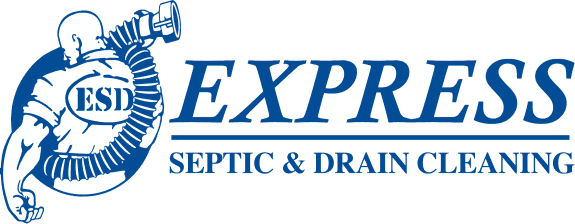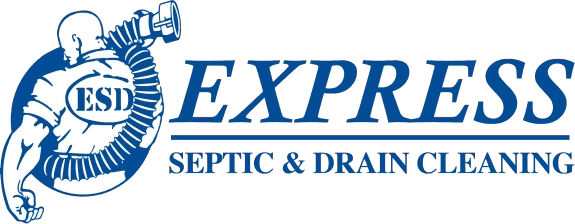Your septic system works by moving wastewater from your Caldwell, ID home into a tank on your property. The tank may be above or below ground. When the wastewater arrives in the tank, bacteria set to work to eat away at the solid waste. This turns the solids into liquid form that is removed through a drain pipe. The pipe moves the liquid waste to a drain field that is comprised of minerals and rocks. The cleaned water is then emptied into the natural groundwater.
Without septic treatments, the bacteria in the tank become less efficient in breaking down the solids. Express Septic & Drain Cleaning recommends monthly treatments to support the bacterial colonies inside the tank, but which septic treatment is the best? The answer is not as straightforward as you might think. Let’s look at the most common types of septic tank treatments and how well they work.
Biological Septic Tank Treatments
Biological septic tank treatments are made with enzymes or bacteria. This increases the number of tiny bacteria that break down the solids in the wastewater. If you are looking for a natural way to treat your septic system, biological treatments are the best option. The bacteria not only help with the process inside the tank but also the drain field. Biological additives are also much safer for the natural groundwater than other types of septic treatments.
Inorganic Treatments for Your Septic System
Inorganic septic treatments are made with alkalis and acids, and this is one of the least effective ways to clean your tank. Although these substances quickly break down solids in the tank, they also corrode the interior of your septic tank. Inorganic treatments also have the opposite effect of what you want. They actually destroy the natural bacteria inside your septic tank. Over time, the solids are not broken down and clog the drain pipe of the tank. Solid waste also leaks into the drain field, eventually reaching the groundwater.
Treating Your Septic System With Organic Additives
Some septic tank treatments contain solvents that are most commonly used to break down grease and oil, such as trichloroethylene and methylene chloride. These ingredients do help with wastewater from your kitchen, but not so much with human waste solids. As with inorganic treatments, organic additives disrupt the bacterial colonies that are needed for a healthy septic system. As with inorganic treatments, organic compounds drain out of the tank and into the drain field and groundwater.
Is Hydrogen Peroxide Effective for Treating Septic Systems?
Years ago, manufacturers and septic system companies recommended that homeowners in the Caldwell, ID area use hydrogen peroxide to treat their septic systems. Unlike inorganic and organic additives, hydrogen peroxide does not destroy the natural bacterial colonies inside the tank. Studies have shown, though, that hydrogen peroxide is bad for the soil. We also now know that the compound breaks down drain fields.
How to Choose the Best Treatment for Your Septic System
Biological additives are by far the best treatment for your septic system. These products preserve the natural bacterial colonies, and they are safe for the environment. Beyond the type of product to use, there are other factors to consider when choosing a product for your septic tank. Septic treatments are packaged for one use, so you need to know the size of your tank. If you purchase a product that is intended for a larger or smaller tank, you won’t get the desired results.
Septic tank treatments are rated for their effective lifespan. You can choose a treatment that lasts between one month to one year. You can also find special products just for clogs, and we recommend that you use biological additives for this purpose, as well.
Monthly Treatments and Product Lifetime
You may be wondering why we recommend monthly septic system treatments if products are available to last three months to one year. Septic system treatments not only maintain a healthy balance inside the tank but also help clean the pipes of the system. If you only use a septic treatment every three to 12 months, you lose the benefit of keeping your plumbing pipes clean.
Should I Use a Powder, Liquid, Pod, or Tablet in My Septic System?
When you start looking for septic tank treatments, you’ll find a range of products in different forms – powders, liquid, pods, and tablets. Powders are the most challenging to work with because you have to carefully measure the right amount. Too much powder and you may disrupt the bacterial balance in the tank. Too little powder and you may not get the desired results. The benefit of a powder is that you can measure according to the size of your tank.
Like powder treatments, liquid septic tank treatments have to be carefully measured. You can use just the right amount for the size of your tank. Despite the convenience of liquid treatments, they are typically only used to unclog septic systems.
Pods are one of the newer packaging options for septic treatments. The pods are pre-measured and wrapped in a casing that dissolves in water. Septic tank pods do not work as quickly as powders and liquids, and you have to buy the right size pods for your septic tank.
Tablets take the longest time to work. You have to let the tablet dissolve completely in your toilet before flushing. Tablets are pre-measured, so you need to buy the right size for your tank.
What Is the Most Environmentally-Friendly Treatment for Septic Systems?
Biological septic tank treatments are the most environmentally-friendly option. Not only do these products boost the number of bacteria inside the tank, but they also will not harm the soil or groundwater. The enzymes and bacteria in these products are completely natural.
How to Use a Septic System Treatment
Septic system treatments are easy to use, and you don’t have to add the product directly to the tank in your yard. You add the product to a toilet in your house and flush. It’s that easy. Powders need to sit in the toilet long enough to sink to the bottom of the bowl. Otherwise, the force of flushing releases some of the powder into the air. Pods and tablets need to dissolve completely before you flush. With a liquid treatment, you can flush the toilet right after adding it to the bowl.
How Do I Treat Odor Coming from My Septic System?
An odor from your septic system indicates a clog. There are signs of a problem well before you smell it. A clogged septic system causes the plumbing to run slower. You may notice that your sinks drain slowly. You may also have to flush the toilet more than once to empty the bowl. As soon as you notice any of these problems, use a product that is designed for septic system clogs.
Professional Septic System Services
Express Septic & Drain Cleaning specializes in septic system services for homes in Caldwell, ID and surrounding areas. If you ever have questions about the best septic treatment or how to use these products, give us a call. We also offer septic installation, repair, pumping, maintenance, and inspection services.



